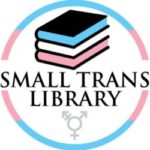In order to make archives searchable, particularly in a digital environment, an archivist categorises the objects, works and ephemera using a predetermined classification system and set of descriptive rules. The vocabulary/conventions of these systems, that which users engage with to locate the material they seek, reflect the cultural norms of any given social context– norms of cisnormativity, heteronormativity, racism, classism, sexism and western imperialism. The presence of queer and trans aesthetics, people and practices in the archive can interrupt and challenge these cultural norms and often elude fixed classification.
The first part of this talk will examine transness in the archive, and the adjoining workshop will aid participants in identifying archival descriptions that exclude, silence, harm, or mischaracterize queer and trans narratives and people. It will also provide a pathway for various users to take part in reparative description, either within the metadata of record or in the process of gathering research data.
Attendees are advised to bring their own fully charged laptop devices – to enhance the participatory learning experience of the workshop.
